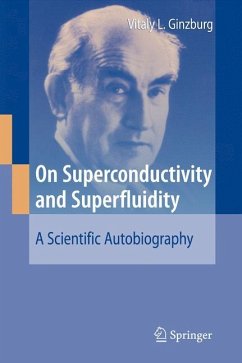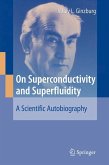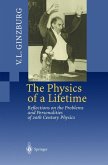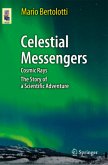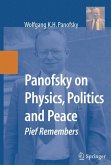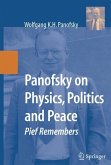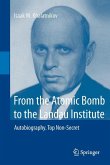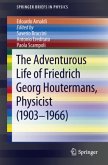A Nobel Laureate presents his view of developments in the field of superconductivity, superfluidity and related theory. The book contains Ginzburg's amended version of the Nobel lecture in Physics 2003, as well as his expanded autobiography.
This book presents the Nobel Laureate Vitaly Ginzburg's views on the development in the field of superconductivity. It contains a selection of Ginzburg's key writings, including his amended version of the Nobel lecture in Physics 2003. Also included are an expanded autobiography, which was written for the Nobel Committee, an article entitled "A Scientific Autobiography: An Attempt," a fundamental article co-written with L.D. Landau entitled "To the theory of superconductivity," an expanded review article "Superconductivity and superfluidity (what was done and what was not done)," and some newly written short articles about superconductivity and related subjects. So, in toto, presented here are the personal contributions of Ginzburg, that resulted in the Nobel Prize, in the context of his scientific biography.
This book presents the Nobel Laureate Vitaly Ginzburg's views on the development in the field of superconductivity. It contains a selection of Ginzburg's key writings, including his amended version of the Nobel lecture in Physics 2003. Also included are an expanded autobiography, which was written for the Nobel Committee, an article entitled "A Scientific Autobiography: An Attempt," a fundamental article co-written with L.D. Landau entitled "To the theory of superconductivity," an expanded review article "Superconductivity and superfluidity (what was done and what was not done)," and some newly written short articles about superconductivity and related subjects. So, in toto, presented here are the personal contributions of Ginzburg, that resulted in the Nobel Prize, in the context of his scientific biography.
From the reviews:
"Ginzburg's final book, On Superconductivity and Superfluidity: A Scientific Autobiography, contains his 2003 Physics Nobel Prize lecture, his views on contemporary scientific and political issues, and his contributions to physics, particularly to his two favorite fields, mentioned in the book's title. ... The general public will find Ginzburg's personal views interesting ... . the book is intended for people with a physical-science or mathematical education." (Valery Pokrovsky, Physics Today, January, 2010)
"The volume under review presents Vitaly Ginzburg's personal impressions on the development in the field of superconductivity. The present book contains a selection of Ginzburg's key writings, including his amended version of the Nobel lecture in Physics 2003. ... The book is intended for people with a physical-science or mathematical education and the readers will find Vitaly Ginzburg's personal views as very interesting." (Vicentiu D. Radulescu, Zentralblatt MATH, Vol. 1205, 2011)
"Ginzburg's final book, On Superconductivity and Superfluidity: A Scientific Autobiography, contains his 2003 Physics Nobel Prize lecture, his views on contemporary scientific and political issues, and his contributions to physics, particularly to his two favorite fields, mentioned in the book's title. ... The general public will find Ginzburg's personal views interesting ... . the book is intended for people with a physical-science or mathematical education." (Valery Pokrovsky, Physics Today, January, 2010)
"The volume under review presents Vitaly Ginzburg's personal impressions on the development in the field of superconductivity. The present book contains a selection of Ginzburg's key writings, including his amended version of the Nobel lecture in Physics 2003. ... The book is intended for people with a physical-science or mathematical education and the readers will find Vitaly Ginzburg's personal views as very interesting." (Vicentiu D. Radulescu, Zentralblatt MATH, Vol. 1205, 2011)
Aus den Rezensionen: "Wenn einer der großen russischen Physiker seine Autobiografie veröffentlicht, verdient dies zweifellos besondere Aufmerksamkeit. Dies gilt ... uneingeschränkt für Vitaly Ginzburg und sein Buch ... Im Abdruck der berühmten Arbeit ... spiegelt sich auch die Tatsache wieder, dass diese Arbeit wohl die größte wissenschaftliche Wirkung erzielte. ... Natürlich ist das Buch keine Einführung in die Supraleitung und Supraflüssigkeit. Für den Experten und Wissenschaftshistoriker ist es aber eine ergiebige Quelle zu den Entwicklungen auf diesen Gebieten. Besondere Höhepunkte sind die ausführlichen Schilderungen zu den Anfängen ..." (Rudolf Huebener, in: Physik Journal, November/2009, Vol. 8, Issue 11, S. 58)

